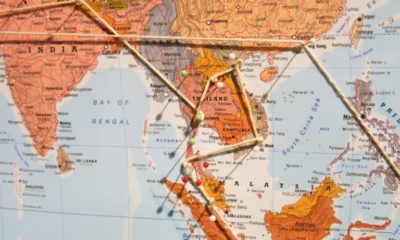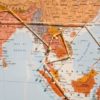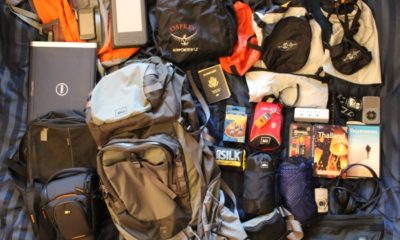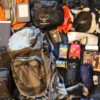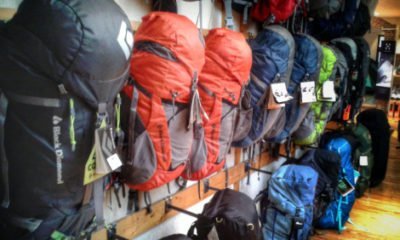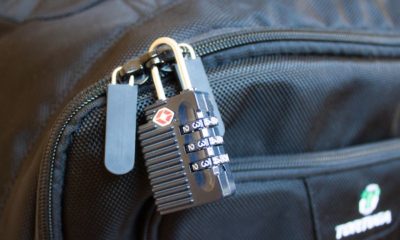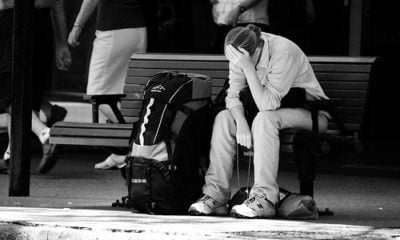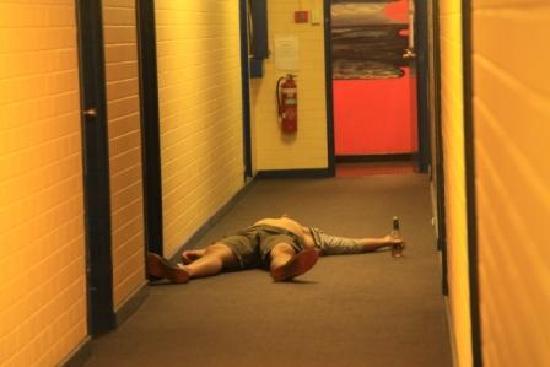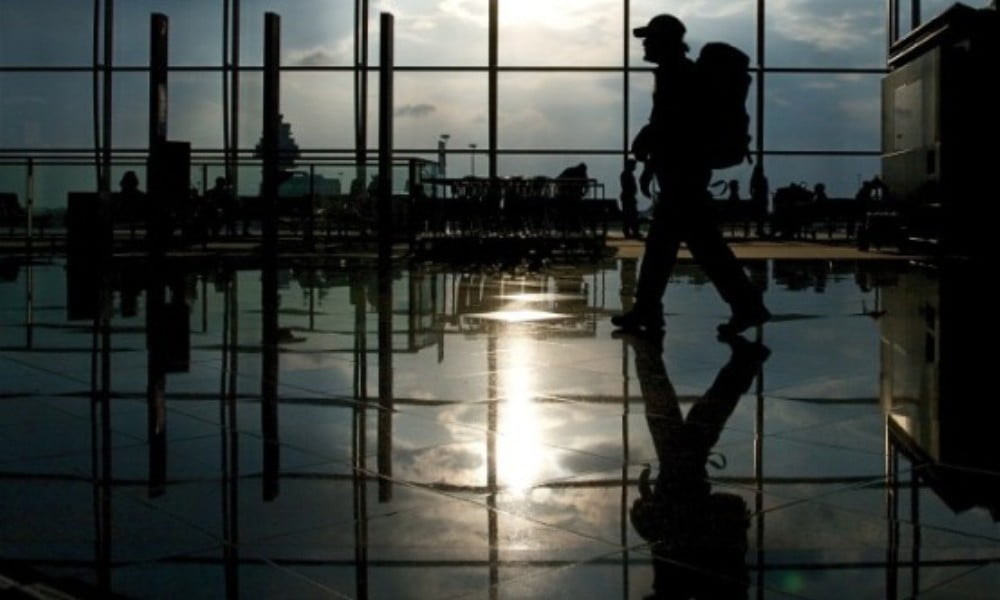Travel Vaccinations and How To Stay Healthy While Backpacking
Staying fit and healthy is a familiar concern before going backpacking, but it really is just a matter of using your common sense and instincts.
Staying fit and healthy is a familiar concern before going backpacking, but it really is just a matter of using your common sense and instincts.
Before you go travelling, make sure you:
Contact your doctor around 8 weeks before your trip to check whether you need any vaccinations or other preventive measures
AND
Arrange comprehensive medical insurance before you travel.
*Always consult your doctor before travelling – vaccination and health advice can change. The information below is as accurate as it can be, but is only a guide.
I am NOT a medical professional. Your doctor is the best person to advise you on every medical issue you may have – you shouldn’t trust everything you read on the internet, particular in regards to important issues such as your health.*
Pre-Departure Consultations – Visit A Doctor
As mentioned above you should see your doctor around 8 weeks before your trip, but the sooner the better. After informing your doctor of your plans and the countries you intend to visit, they will advise you the necessary vaccinations and health precautions. They should provide you with a card explaining exactly what travel immunisations you have had.
| You should carry a list with you whilst travelling containing: |
|---|
|
It may be a good idea to arrange general medical and dental checkups if you are going to be away for a long period of time.
Travel Vaccinations You May Need
The most important thing to remember is that vaccination courses can take up to a month to complete and often need time to take effect, hence why you should see you doctor around 8 weeks prior to your trip.
The NHS Fit for Travel website provides information on what immunisations are needed for every possible destination, but as mentioned before your doctor is the best person to ask.
Here is a list of the most common travel vaccinations and where you need them for:
Routine Boosters – (MMR (Measles, Mumps and Rubella), DPT (Diphtheria, Pertussis, and Tetanus) and Polio)
These are injections you would have already had (probably whilst a baby or at school), but the effectiveness does diminish over time. You need to ensure they are up to date, and if necessary get boosters, as they will be required wherever you are going.
Hepatitis A
Hepatitis A is spread through contaminated food and water. This vaccination is necessary when backpacking in developing countries. It is only not considered necessary if you are travelling to northern or western Europe, North America, Australia, New Zealand or Japan.
Hepatitis B
Hepatitis B is transmitted in the same way as AIDS, through unprotected sex, infected blood and contaminated needles. It is very much an optional vaccination, avoid risky behaviour e.g. unprotected sex, tattoos, piercings, dental/ surgical procedures, and visiting traditional barbers when in high risk destinations and you should be OK without it. You will need to visit your doctor 6 months before travelling for this 3 jab course. It can also be combined with the Hep A vaccine.
Rabies
Transmitted through animal (mainly dog) bites, scratches and licks to open wounds. Pre-exposure vaccines are optional, as even when the vaccine has been received, urgent medical advice should be sought after any animal or bat bite as post-exposure vaccinations are required. Getting the pre-exposure injections before travelling gives you extra time to get to a health clinic for the post exposure jabs and you also require fewer of them. Having being bitten by a dog myself in Thailand, whilst unvaccinated, I highly recommend you get this vaccine if travelling to undeveloped countries where stray animals are common, mainly for peace of mind.
Avoid stray and wild mammals, don’t pet or feed them, no matter how cute. Never run from dogs as this will encourage them to attack. Rabies is 100% fatal once symptoms develop, but symptoms are 100% preventable if you act immediately. If bitten by any mammal (including bat) wash the wound thoroughly with soap and visit a health professional for post exposure vaccinations. Read more about Rabies.
Typhoid
Typhoid is spread mainly through consumption of contaminated food and drink. Risk is higher where access to satisfactory sanitation and safe water is limited. The vaccination should be considered if travelling to any undeveloped country.
Japanese Encephalitis
Japanese Encephalitis is spread through the bite of an infected mosquito, it can be both life threatening and neurologically damaging. This mosquito breeds in rice paddies and mainly bites between dusk and dawn, the risk is highest for long stay travellers in rural areas. An optional vaccine for travellers to Asia, Papua New Guinea, Far North Australia and Torres Strait Islands.
Meningococcal Meningitis
This disease is transmitted by sneezing and coughing. Travellers to Central Africa and parts of the Middle East should be vaccinated against meningococcal meningitis.
Yellow Fever
Spread by the bite of an infected, day-biting mosquito. Travellers to tropical parts of Africa and South America should have a yellow fever vaccination.
Cholera
Cholera is common after natural disasters, in areas with very poor sanitation and lack of clean drinking water. It is unusual for travellers to contract cholera if you take basic precautions with food and water and maintain a good standard of hygiene, therefore this is really only an optional vaccination if you think you may be exposed to extremely poor sanitation.
Things You Cannot Get A Vaccination Against
Malaria
Malaria carrying mosquitoes are found in many tropical and subtropical countries and the disease is one of the most serious health concerns for travellers, as it is widespread and can be fatal.
There are two main ways to prevent malaria, the first being trying to avoid mosquito bites. You can do this by using high DEET insect repellent (at least 30%) and covering skin with longer clothing during the evening and night, when malaria carrying mosquitoes are most active.
The second preventive measure is taking anti-malaria tablets which can be 95% effective against the disease. Your doctor is the best person to advise you on malaria tablets.
Remember following these guidelines does not guarantee complete protection. If you get a fever between one week after first exposure and up to one year after your return, you should seek medical attention and tell the doctor that you have been in an area with a malaria presence.
The NHS FFT website has more info on malaria and risks per country.
Dengue Fever
Dengue Fever is also spread by mosquito, again in many tropical and subtropical countries, but that bites during the day and is more common in urban areas. It is not usually serious; symptoms are a fever, headache, muscle and joint pains and usually disappear after a few days, but in rare cases can be severe and you should seek medical attention if symptoms become worse. There is no medication to avoid dengue fever, so try to avoid mosquito bites, by using insect repellent.
AIDS
Everyone knows how serious a disease AIDS is, but it is often overlooked by travellers – it is at pandemic proportions in parts of Asia and Africa. Although it is easily avoidable; never have unprotected sex with a stranger whilst travelling, share a needle or have medical procedures (including tattoos and piercings).
Schistosomiasis
Schistosomiasis or bilharzias is a disease caused by parasitic worms. It is prevented by avoiding stagnant water which they thrive in, particularly in Africa, and also less commonly in South East Asia, South America and the Middle East. Always think twice before swimming, washing or bathing in water – if it is stagnant, don’t do it.
Venomous Animal Bites
It is rare to see venomous animals such as snakes, spiders and scorpions – they will always try to avoid human contact. Most bites occur when people try to pick them up, which is obviously incredibly stupid. Snakes have the most toxic venom and are the most common to bite, as people can stand on them when walking in long grass, and they bite as a defensive measure. Try to avoid walking through tall grass and never do so whilst wearing flip flops. If bitten, place a firm (not tight) bandage around the wound and immobilize the limb, then seek medical attention urgently – anti-venom is widely available in countries with venomous animals. DO NOT wash the venom off, as it is used to identify the type of animal – in order to provide the correct anti-venom.
Drinking Water
Water should only be drunk when you are sure of its purity. Most hostel kitchen taps in developed countries are safe to drink from, but always check with staff if unsure.
In developing countries it is best to stick with bottled, boiled, chemically purified or filtered water. This includes ice cubes in drinks and when cleaning your teeth.
Bottled water is usually safe, just unsure that the bottled is properly sealed and hasn’t been tampered with. Hot tea and coffee, beer and wine are all safe to drink.
Food Hygiene
Always wash your hands before eating, you never know what you might have touched during the day. Facilities may not be great so always carry hand sanitizing gel.
In terms of food safety just use your instincts; if the place looks dirty, don’t eat there; if your food isn’t piping hot, don’t eat it.
Street food isn’t as bad as government health websites make out. You often see the food cooked right there in front of you, so you know if it has been handle properly and cooked right. With street food, choose food that is freshly cooked to a high temperature and served immediately while still hot.
Avoid salads as they are easily contaminated by soil and flies, and are often washed using impure water. Also shun leftovers or food that may have been exposed to the air for any length of time – I myself had a bad case of food poisoning in Thailand from a beach buffet, where food had been left in the open air for hours.
Complacency is one of the main causes of food poisoning.
Don’t get complacent like I did. I had been in Asia for 2 and a half months and had no problems, so took more risks with food thinking it would be OK.
Cheese and ice cream are usually made from unpasteurised milk, therefore you should only buy from well established retailers (i.e. 7Eleven) and brands (i.e. Walls/ Streets) where quality can usually be assured. I met someone who told me a horrible story of how they contracted tropical dysentery from an ice cream they bought from a beach seller.
Meat should be eaten hot whenever possible – always ensure it is thoroughly cooked. Fish and shellfish can be unsafe at certain times of the year, even if well cooked. Take local advice about seafood, but when in doubt it is best avoided.
Ignored Health Risks
Dehydration
Ensure you are drinking plenty of water, particularly in hot climates, dehydration can range from being unpleasant to life threatening. Avoid drinking excessive amounts of alcohol in the mid day heat and try to drink water after finishing a heavy drinking session.
Altitude Sickness
Much more dangerous than people believe, if you are climbing a mountain and you are feeling dizzy or light headed immediately descend, altitude sickness can be fatal and medical attention is usually very far away when it occurs.
Sunstroke And Sunburn
Exposure to the sun is extremely bad for your skin in the long term, and everyone knows how painful and intolerable sunburn and sunstroke are, but still many people ignore sun protection. Always wear sun cream and a hat if you are going to be outside for long periods.
Allergies
In a new environment anyone can suffer from allergies. Antihistamine tablets relieve symptoms of allergies so be sure to pack some.
Jet Lag
Jet lag can be very unpleasant and ruin the first few of days after arriving, causing disturbed sleep patterns, weakness and disorientation. Read our Tips on How To Avoid Jet Lag
Bed Bugs
Bed bugs are not serious at all, but stay a night in an unclean bed and you body will be covered in annoying, itchy sores. Be sure to pack a sleep sheet or sleeping bag liner if you are going to be staying at some grubby hostels.
If You Become Sick
Food poisoning is by far the most common ailment whilst travelling. Symptoms usually go after a few days and the best remedy is to drink plenty of water, as without going into too much detail you will be losing a lot of bodily fluids.
When I had food poisoning I booked myself into a private room in a nice hotel, with ensuite bathroom, and would highly advise you do the same if feeling ill.
If you feel you require medication, ask hostel staff for a reputable pharmacy or visit a doctor for a prescription. Medication sold on the street is unlikely to be genuine and may have been stolen. Taking medication without medical advice or a prescription can have serious health consequences.
If you are experiencing any unusual symptoms or symptoms lasting or not improving after more than 3 days always see a doctor.
With anything serious, don’t take chances. Go to a hospital and contact your family, your family GP, or insurance company. If you are in a remote area get to a major city as quickly as possible.
Dialing 112 in most countries will redirect you to the emergency services. 911, 999, 000 are also common emergency service numbers, and again dialing them should redirect you to the emergency services.



